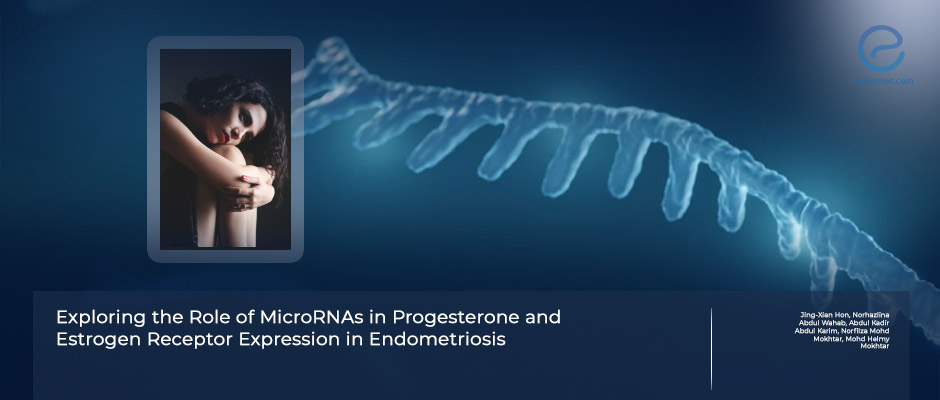MicroRNA-Mediated Hormone Dysregulation in Endometriosis
Nov 21, 2024
micro RNAs could be potential biomarkers of endometriosis as well as potential therapeutic targets for the disease.
Key Points
Highlights:
- Some micro RNAs may be related to the expression of estrogen receptors(ERs) and contribute to progesterone resistance in endometriosis.
- The binding of micro RNAs to target genes could also contribute to endometriosis pathogenesis.
Importance:
- This study uncovers how specific microRNAs contribute to progesterone resistance in endometriosis by modulating ER expression, offering new insights into the molecular mechanisms behind the disease.
What’s done here:
- Researchers analyzed the eutopic and ectopic endometrium of 18 women with endometriosis and the endometrium of 18 healthy controls.
Key results:
- miR-199a-3p, miR-1-3p, miR-146a-5p, and miR-125b-5p were upregulated in the ectopic endometrium.
- The expression of ER beta was significantly upregulated and the expression of ER alfa was significantly downregulated in the ectopic endometrium.
- The expression of progesterone receptors A and B was similar between women with endometriosis and healthy controls.
Limitations
- The sample size is small and there is little heterogeneity between samples from each group.
Lay Summary
The expressions of certain micro RNAs and estrogen receptor (ER) beta are significantly upregulated while that of ER alfa is downregulated in the ectopic endometrium, according to a new study published in the scientific journal Biomedicines. However, the expression of progesterone receptors(PRs) A and B is not different. Based on these findings, the authors of the study concluded that micro RNAs could be potential biomarkers of endometriosis and be targeted to treat the disease.
It is already known that patients with endometriosis respond poorly to progestins because of progesterone resistance associated with micro RNAs.
In the present study, a team of researchers led by Dr. Mohd Helmy Mokhtar from the Department of Physiology, Faculty of Medicine at Universiti Kebangsaan Malaysia in Kuala Lumpur, Malaysia analyzed the expression of selected micro RNAs, estrogen receptor alfa and beta, and PR A and B to determine the target genes of upregulated micro RNAs in patients with endometriosis. The team analyzed eutopic and ectopic endometrial samples from 18 patients with endometriosis and 18 endometrial samples from healthy volunteers.
Then, using next-generation sequencing they identified seven micro RNAs that were significantly differentially expressed between the samples. Of these, 6 were related to endometriosis. The researchers showed that, out of these 6 micro RNAs, 4 (miR-199a-3p, miR-1-3p, miR-146a-5p, and miR-125b-5p) were upregulated in the ectopic endometrium compared to the eutopic endometrium. In addition, the expression of ER alfa and beta was significantly different in patients with endometriosis compared to those without the disease.
However, the expression of PRs A and B was not different between women with and without endometriosis. The predicted target genes for miR-199a-3p, miR-1-3p and miR-125b-5p were SCD, TAOK1, DDIT4, LASP1, CDK6, TAGLN2, G6PD, and ELOVL6.
“To our knowledge, this is the first study to determine the roles of miR-199a-3p, hsa-miR-1-3p and hsa-miR-125b-5p in progesterone resistance in endometriosis via targeting SCD, TAOK1, DDIT4, LASP1, CDK6, TAGLN2, G6PD and ELOVL,” the researchers wrote. “Therefore, this research contributes to a better understanding of the miRNA expression profile, steroid hormone receptor expression and the target genes involved in endometriosis. This offers exciting opportunities for the development of biomarkers and personalised, targeted therapies for this debilitating disease”.
Research Source: https://pubmed.ncbi.nlm.nih.gov/39457531/
micro RNA estrogen receptor progesterone receptor progesterone resistance

